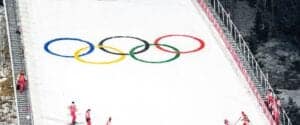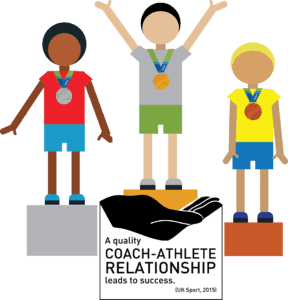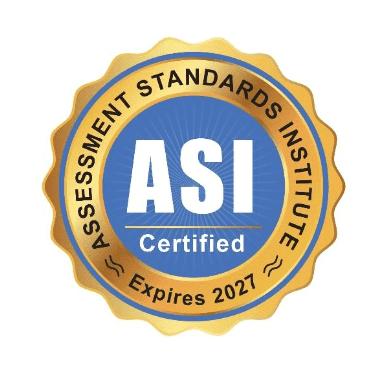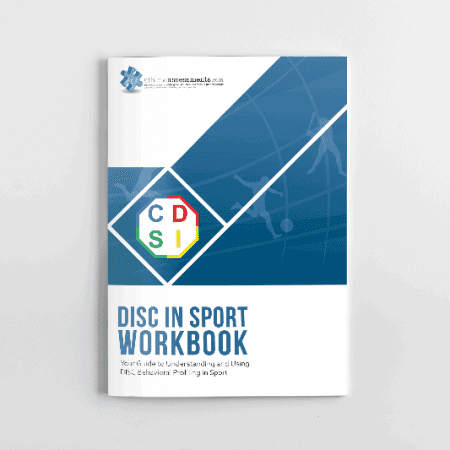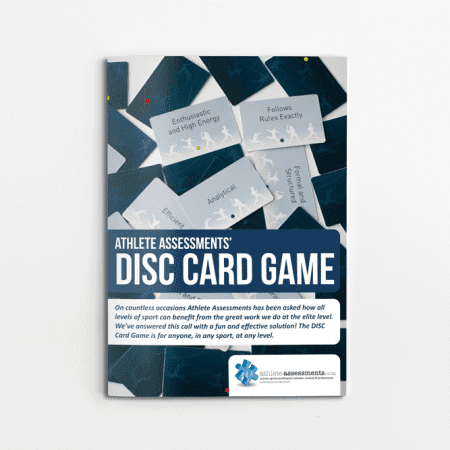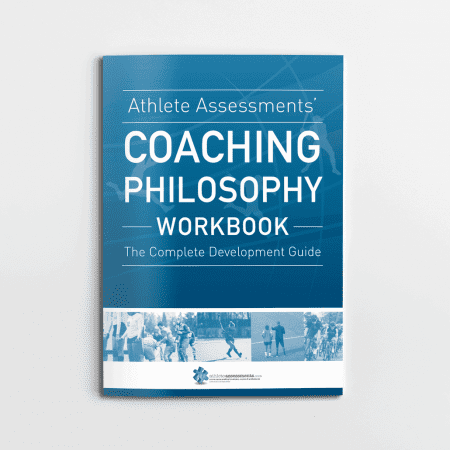DISC Profiling in Sport
If you are looking for an assessment to predict who is going to win or be the most successful athlete, coach, or sports professional, then you are in the wrong place. But, before you leave, we caution you as to whether a ‘sure thing’ tool even exists. Trying to predict individual success in sport is highly risky and almost always unrewarded. But, there is a better, more successful approach to top performance.
Most Overlooked Performance Factor
Top sporting performance, whether on the track, field, pool or court, or on the management and administration side, relies on so many important variables being executed at the highest level and in unison. In elite sport, the competitive advantage in many of these elements has already been exhausted like strength and conditioning, game or race strategy, nutrition, and many other physical areas. In today’s competitive world of sport, for the most part, the physical side has little competitive advantage left or, as endless media headlines attest, any physical gain can be easily undone. Yet, one of the most impactful factors of sporting success is often overlooked or underestimated.
Research has Overturned the Old Ways
The latest research turns on its head the long-held view of how to achieve ultimate sporting performances. Research presented at the World Class Performance Conference in London in November 2015 delved into what differentiates a superelite (a high performing athlete who was expected to do well and went on to win multiple medals) from someone who competes at the Olympics but goes home empty-handed. According to this study, the differentiator was the quality of the coach–athlete relationship. While surprising to some, these results were not isolated.
Previous prominent research conducted as part of the Canadian Olympic Study “Own the Podium” definitively showed that the top two contributors to medal winning or personal best performances were the quality of the coach-athlete relationship and the athlete’s self-awareness.
In recent years, more attention has focused on the impact of the coach-athlete relationship on an athlete’s performance. Research from the 2008 Canadian Olympic Study showed that coach-athlete relationships significantly impact athlete performance.
Throughout August the world’s top athletes battled it out in Rio as part of the 2016 Olympic Games. But some far outshone others to take home the medals. According to Scientific American, researchers have a special term for these best of the best: superelites.
“A common mistake among those who work in sport is spending a disproportional amount of time on “x’s and o’s” as compared to time spent learning about people.”
What the Most Successful in Sport Know
Whether aware of this research or intuitively known, the most successful people in sport use the hidden value of understanding how to consistently create top performance in themselves (built on self-awareness), the importance of communication, and how well people work together (relationship skills). They focus on these areas as they know it results in the best outcomes and ultimately winning.
As legendary basketball coach Mike Krzyzewski so aptly said:
“A common mistake among those who work in sport is spending a disproportional amount of time on “x’s and o’s” as compared to time spent learning about people.”
While often dismissed by others as the ‘soft side’, getting it right on the ‘people side’ results in the highest performances being achieved.
to Getting the ‘People Side’ Right in Sport
The primary purpose of DISC profiling is to develop self-awareness and provide a framework for understanding others so you can build effective relationships.
DISC Profiling provides practical strategies to improve performance by:
Developing self-awareness
Fostering effective communication
Enhancing more productive relationships
Tailoring coaching, mentoring and managing
Identifying how each person contributes their best
Optimizing team dynamics (getting team chemistry right)
- Developing self-awareness
- Fostering effective communication
- Enhancing more productive relationships
- Tailoring coaching, mentoring and managing
- Identifying how each person contributes their best
- Optimizing team dynamics (getting team chemistry right)
Its applications range from improving team effectiveness and interpersonal relationships, to leadership development, to recruitment and professional development plans.
DISC Profiling is...
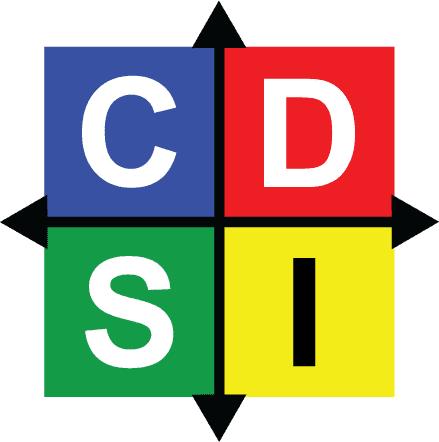
At its simplest, DISC Profiling measures a person’s degree of Dominance, Influence, Steadiness, and Conscientious behavior. Read more about the foundations of the DISC Model.
5 Things You Need to Know about DISC Profiling in Sport
Before learning more about DISC Profiling, there are some important things you need to know:
1
DISC Profiling focuses on behavior which is how someone prefers to act and what they do, rather than personality traits. Behavior is flexible, personality is not. We never ask an athlete to change their personality, but coaches constantly ask athletes to adjust their technique or what they do.
2
At its core, DISC Profiling is based on a simple four-quadrant model. This is critical in sport as it allows coaches, athletes and sports professionals to quickly understand, remember and use. Yet, you can also delve much deeper into its theory and application to truly master this area of expertise, which is what the Athlete Assessments’ DISC Profiles specifically do. (Personality tests are psychometric assessments. They are more complex and require extensive training to administer and work with. Also, most are only developed for business, not sport.)
3
There is no right or wrong, best or worst DISC Profile. We have profiled many of the world’s best and see no pattern for who is more or less successful based on their DISC Profile. What’s most important is how you apply this in sport. Read more about DISC Methodology here.
4
Your aim is never to ‘improve’ your DISC Profile. Instead, the focus is on developing self-awareness, knowing what works for you and what doesn’t, and ultimately knowing what behaviors will produce the best results as an individual and when working in a team. This is the key to high performance, coaching and leadership. Learn more about the importance of profiling in sport.
5
The DISC model was first developed in the 1920’s and has been continually developed, extended and improved on since. As a result, DISC Profiling is the most valid and reliable tool available. It has been heavily used in business since the 1960’s and tailored to sport by Athlete Assessments back in 2007. Read more about the history of DISC Profiling.
Athlete Assessments’ DISC Profiles use proven techniques based on decades of behavioral research and are created and used specifically for sport and the sports industry.
Athlete Assessments’ DISC Profiles are Specifically for Sport
Athlete Assessments provides three different types of DISC Profiles, one specifically for coaches (the CoachDISC Profile), athletes (the AthleteDISC Profile), and sports administrators and other professionals (the Sports ManagerDISC Profile).
Each assessment provides a DISC Profile Report based on the results of a 12-minute online survey. The personalized report details the individual’s personal style, strengths, limiting behaviors, communication preferences, and the ideal environment to enhance performance.
The sporting environment is one of the most demanding and competitive arenas. To be the best you need to be equipped with the best possible resources, the leading performance tools and looking after your most important asset, the people.
As legendary coach Joe Gibbs so simply stated:
“You don’t win with X’s and O’s. What you win with is people.”
Athlete Assessments' Provides Three DISC Profiles
Athlete Assessments’ DISC Profiling is the key to getting the ‘people side’ right in sport. When the stakes are high, are you prepared to under-invest in this most critical area of success?
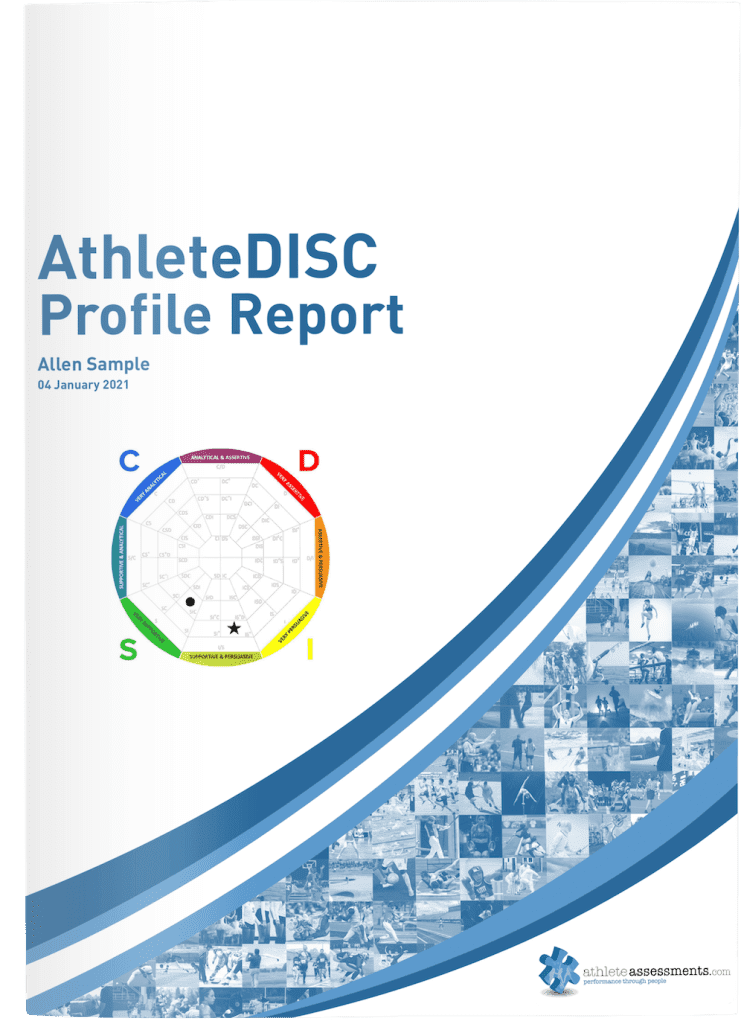
Get practical strategies that will help you coach athletes based on their individual needs. Know the behaviors that produce their best performances for greater consistency when it counts the most. Help your athletes build self-awareness to make improvements and take greater responsibility for their behavior on and off the field.
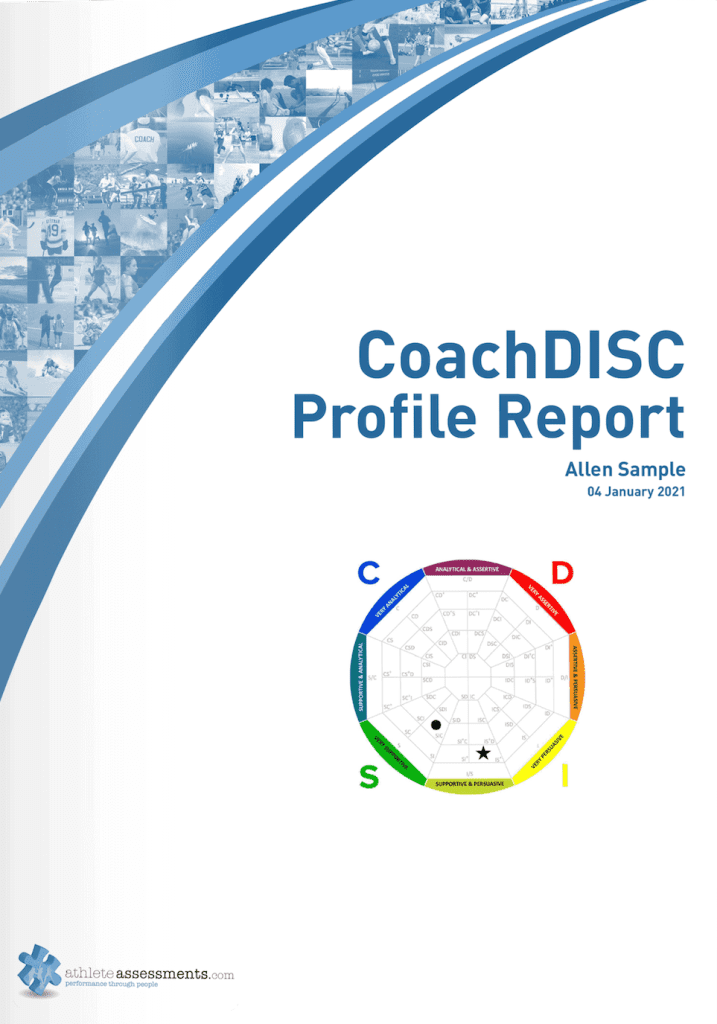
The distinguishing factor of great Coaches is their constant pursuit for the competitive edge both in their athletes and themselves. By better understanding their coaching styles (and others’), coaches can find new ways to further improve their coaching and communication with athletes and others. Ultimately, this results in increased success!
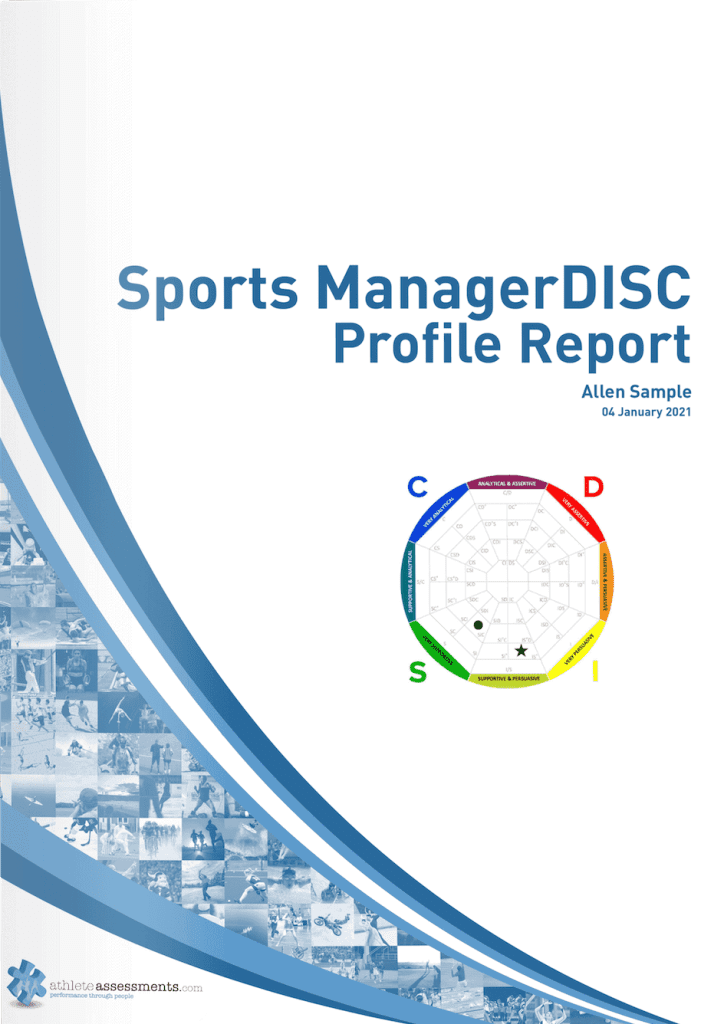
Provide your people with a comprehensive understanding of themselves and those they work with. It quickly improves communication, working relationships and ultimately results. Use with recruitment as a foundation for professional development plans or part of a team building exercise.
While our individual DISC Profile Reports have enormous value and benefits in themselves, what sets Athlete Assessments’ DISC Profiles apart from many of the free profiling tools you can find online, is the additional capabilities included. With options ranging from team dynamic and summary reports, career management and compatibility, to 360 observer feedback.
In addition to our DISC Profiles, we have resources including…
The DISC in Sport Workbook is a handy, easily accessible resource for learning the key principles of DISC Profiling for sport.
The DISC Card Game is versatile and will be your go-to development tool. Put the ‘fun’ into better functioning teams!
Be guided step-by-step through this important process of developing, or updating, your coaching philosophy. It’s easy!
DISC Profiling
Learn how to master the people side of sport using DISC Profiling...
Our Clients
See who we work with and read what they say about us...
Resources
Stay at the forefront with access to our resources, articles and videos


